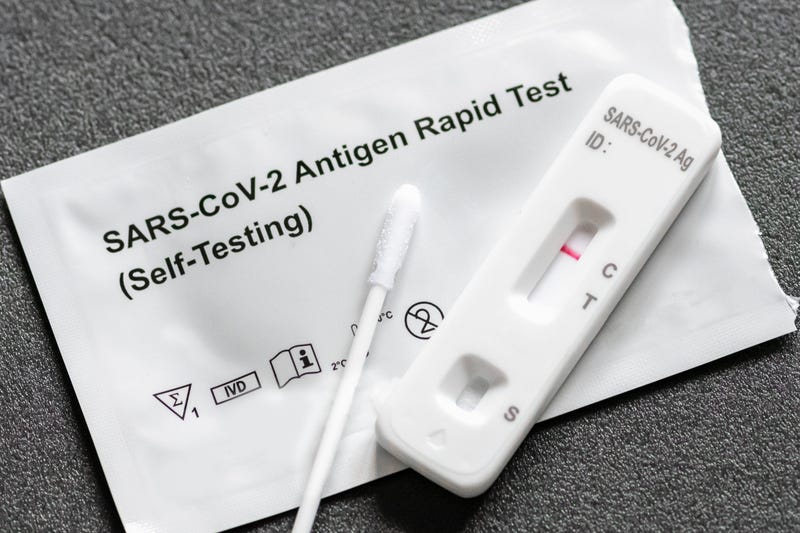
This year's COVID-19 surge feels eerily similar to last year's uptick in cases around the same time.
But there are a few key differences, namely the changes brought on by the omicron variant.
An FDA announcement from last week said that the efficacy of at-home COVID-19 tests is lower in the first day or two of infection with the omicron variant than they were with other variants, like delta.
This is concerning even more so as there has been a significant shortage of tests available overall in recent weeks. Even if someone can get their hands on a test kit, this means they might be unwittingly spreading the virus
"It seems like it’s accurate once you're in day two or three of your case, but right in the beginning it’s less so," said Dr. Bob Wachter, a professor and Chair of the Department of Medicine at the UCSF on KCBS Radio's "Ask an Expert" on Friday with Holly Quan and Eric Thomas.
Which is a "pretty big curveball," said Wachter.
Essentially, if someone starts feeling symptoms that could be associated with COVID-19, like upper respiratory issues, sore throat, cough, fever, they should assume they have it if they can’t get a test.
"There's a decent chance you won't," he said. "But even if the rapid test is negative I think you still have to go with the possibility that you have it."
The only symptoms that are specific to COVID-19 are the loss of taste and smell, which is not as common in omicron.
"It's a tricky position for all of us to be in," said Wachter, but there's just so much omicron being spread around, so many people are getting it.
"Those of us who do this for a living are flabbergasted by how easily this spreads," he said.
And unlike last year, cloth masks just aren't cutting it. People should be upping their game with N-95 masks, as this virus has "gotten so much better at infecting people, we have to get so much better at keeping it at bay," he said.
Travel as well has become more fraught than it was just a month ago, and it’s likely best not to travel at all at the moment. While planes are actually pretty safe with consistent air circulation, people are still taking their masks off to eat and drink.
"If you're on a plane with 100 people, I guarantee you someone on that plane has COVID-19 and doesn’t know it," he said.


